
- In Vitoria-Gasteiz, coinciding with the fifteenth anniversary of the Jimmy Jazz Hall, a lecture cycle has been organized on the four consecutive Mondays. If art and politics were mentioned on the previous occasion, the Basque music scene was discussed on 4 November. If it exists, and if it exists, how it is, that was the starting point.
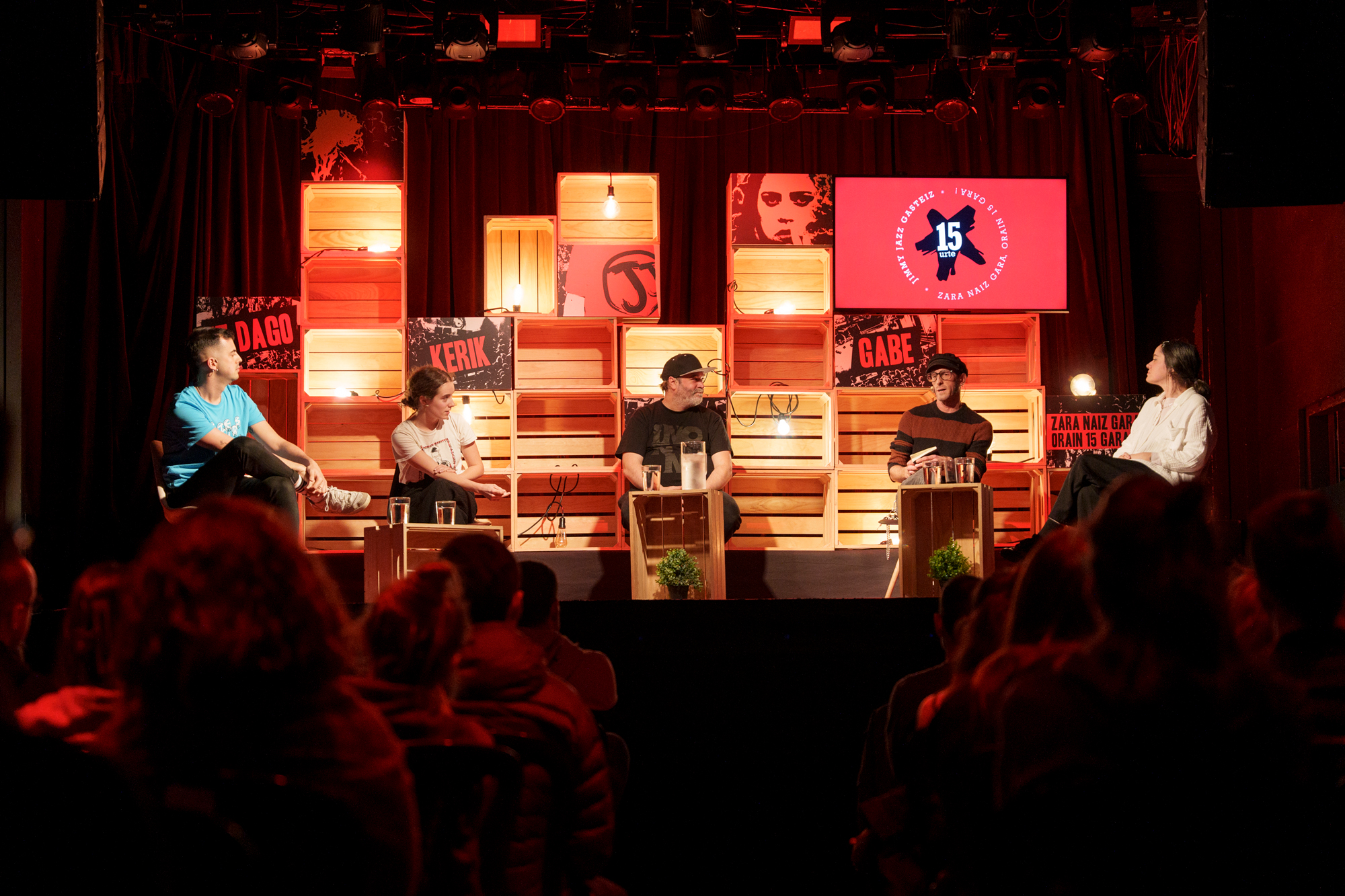
Journalist Koldo Otamendi Kojo, who was at the head of the round table, has been clear from the outset: “I don’t have magic recipes, clear definitions, what the Basque music scene is.” Because someone will say that all the music that is made in Basque is the Basque music scene, that is made in Euskal Herria, that is made for Euskal Herria...
The musician Joseba Baleztena is also present in these conflicts. In Euskal Herria he has spoken of setting a limit, of adding the element of the language, but also believes that it is something more local and a “shared space”. In this sense, Baleztena has had the participation of musicians such as AMETS Aranguren and Julen Idigoras, who do not feel close to part of their own scene. Eneritz Furyak looks closer to the musician. Therefore, it is also not a matter of age, as Idigoras is little older than Fury.
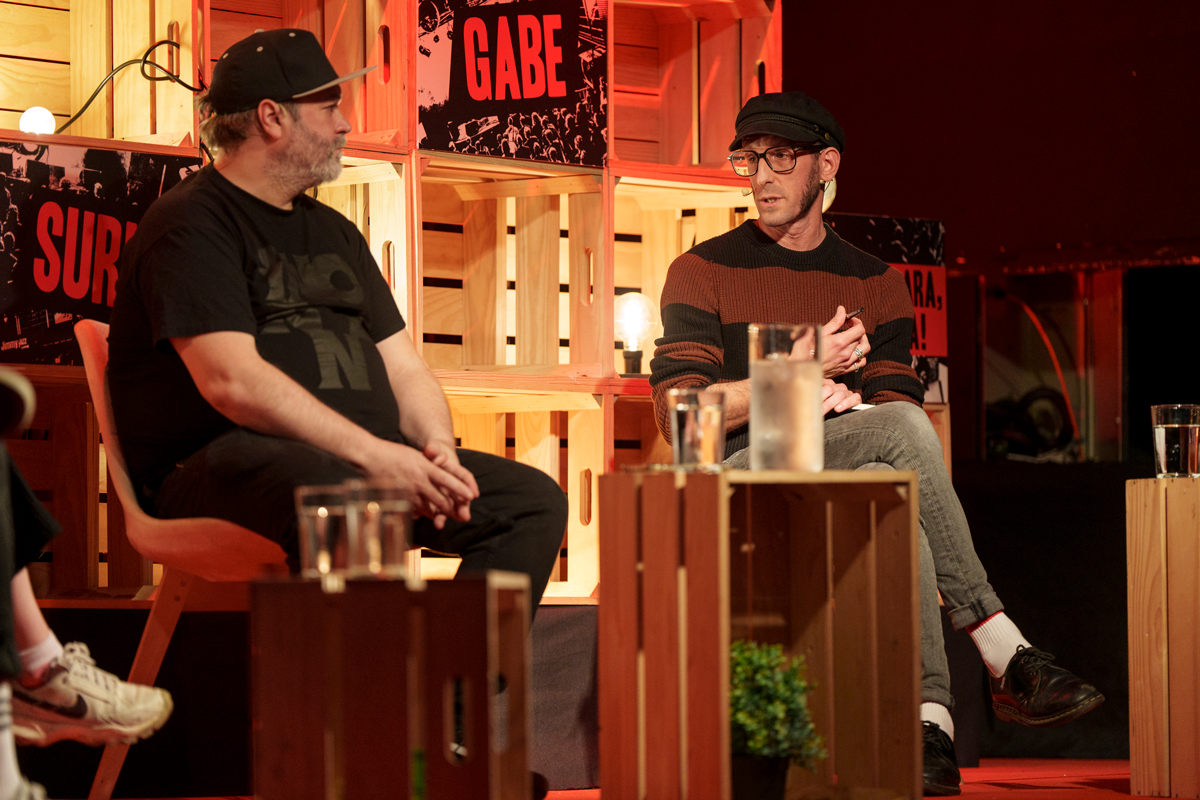
“Why do you say that?” Aranguren asks Balezena. And he said, “Because we have a different way of living and understanding music.” Furyak has developed more because he agrees with Balezten. In the setting of the gaztetxe Lakaxita de Irun has placed the time of its hobby and its musical initiation, the DIY philosophy or Do it yourself, the Bidehuts stamp... “I’ve always been with people who are a decade older, I’ve had contact with my generation later, and now I’m learning a lot,” Furyak concluded.
Tags, why?
So what is the Basque music scene? Rhetorically, Aranguren asks the question: “And what does the definition bring?” In his view, nothing. “I am more in the term Basque music,” he said, although he has acknowledged that this Basque can also have thousands of understandings for the people. “But I’m more in that than in the Basque music scene. In fact, I’ve come to think and question how interesting this matter is.”
Idigoras, besides a musician, is also a journalist in Gaztea Irratia, is the director and host of the B hamlet program. He said that “it’s the way to talk about journalists” to work on categorizations and labels. Anyway, yes: Idigoras also believes that the Basque country has to be somewhere. “It is true that instrumental music is cheat, but if that group creates it in Euskera, if it is part of the Basque world, if the world around it... But calling Basque music to everyone who speaks Basque, such as pop or rock, seems very ambiguous to me.”
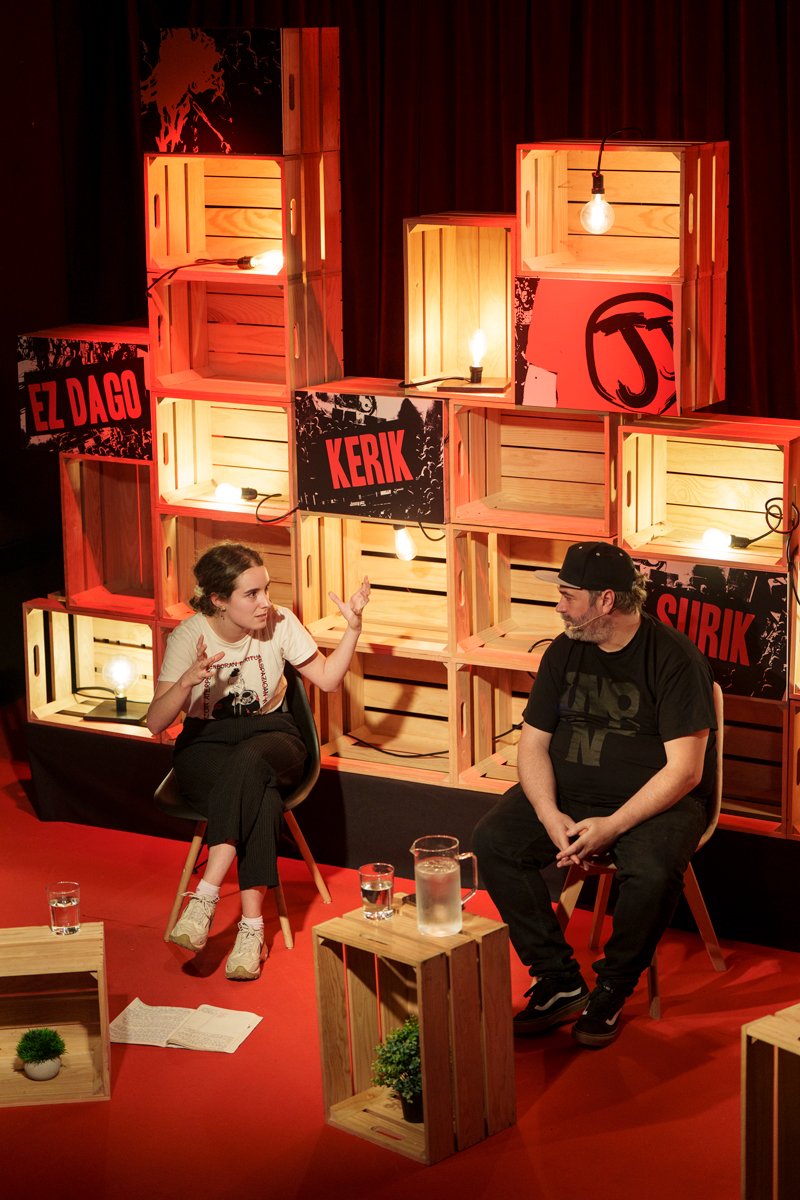
Aranguren has stressed the need to get out of the labels and categories because it is against the musicians themselves. “But it’s also us who show it to the outside,” he said. Aranguren talks about the category of Basque music in stores to all Basque singers, and about the shelves with rock, pop or indie labels next door. Someone would say that we are still like decades ago, because not too many years have passed, at the time when there was no mobile phone, in the musical radios the singers in Basque were presented under the label of the shops mentioned.
How is the audience doing?
Baleztena has given one of his keys to talking about his musical trajectory by pointing out that gaztetxes and bars are his “basic space”: “Before, the kids assured us a place, every weekend we also had an involuntary concert; now I have the feeling that it falls a bit and is causing the phenomenon of sold out.” He has cited a case in which an areto has canceled the concert in advance, two or three days before the concert, as they were sold “only” on the return of twenty tickets. “It’s a trap,” Furyak said. Because there are genres and styles that are “like”, with few people: “Not everything is popular.”
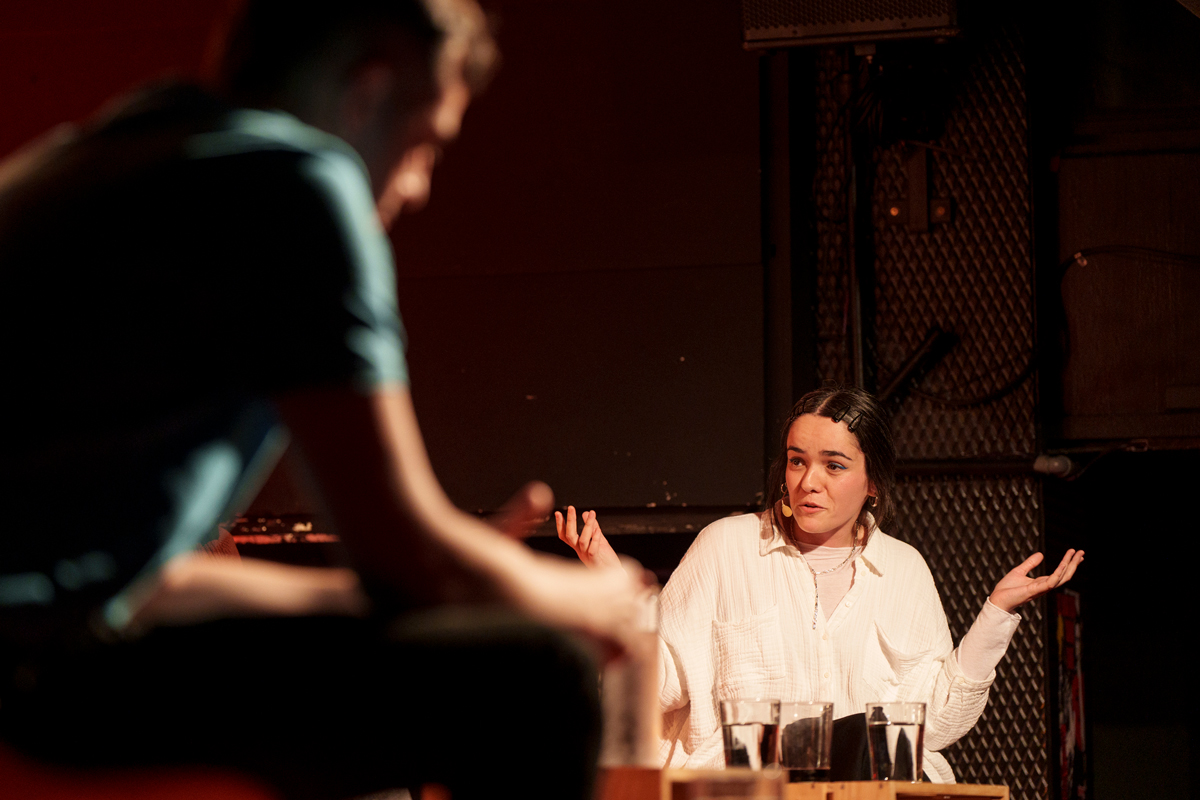
And we have to talk about the “popular”, the popularity that is closely linked to the social phenomenon. Furyak believes that “performative” terrain has gained a lot of weight, and fewer and fewer other issues. He therefore agrees with the change in the atmosphere mentioned by Baleztena in his weekly appearance. “There have always been projects explicitly linked to some messages or aesthetics, and now all that is much more performative,” said Furyak.
Aranguren approaches the thread and begins to speak of a scene linked to the social phenomenon, to the performance: “It’s no coincidence that those people in that particular scene are the ones who don’t find exactly what they don’t find in other concerts. I've never found people that I think, anonymously organizing concerts by others. They are further away from music and closer to performance.”
Ebentism
The performances that most spectacularly achieve are the great actions. It is in this environment that there are more and more musicians. “I have the feeling that in order to compute a concert like a concert it has to be an epidemic of ebentism,” said Baleztena, and has set as an example that concerts of 25, 40 or 60 people no longer have the same value as before. As a public, exactly the same thing: “You must be there, if you’re not a looser.”
Idigoras doesn't like these kinds of great events, although he's played as a musician on those occasions, and every time he goes up on stage he gets a little excited. He believes that the culture of the sold out has “polarized” everything, there is an “exposure” to success and there seems to be no intermediate points. “But the environment is totally different in a macroconado or in a small room.”
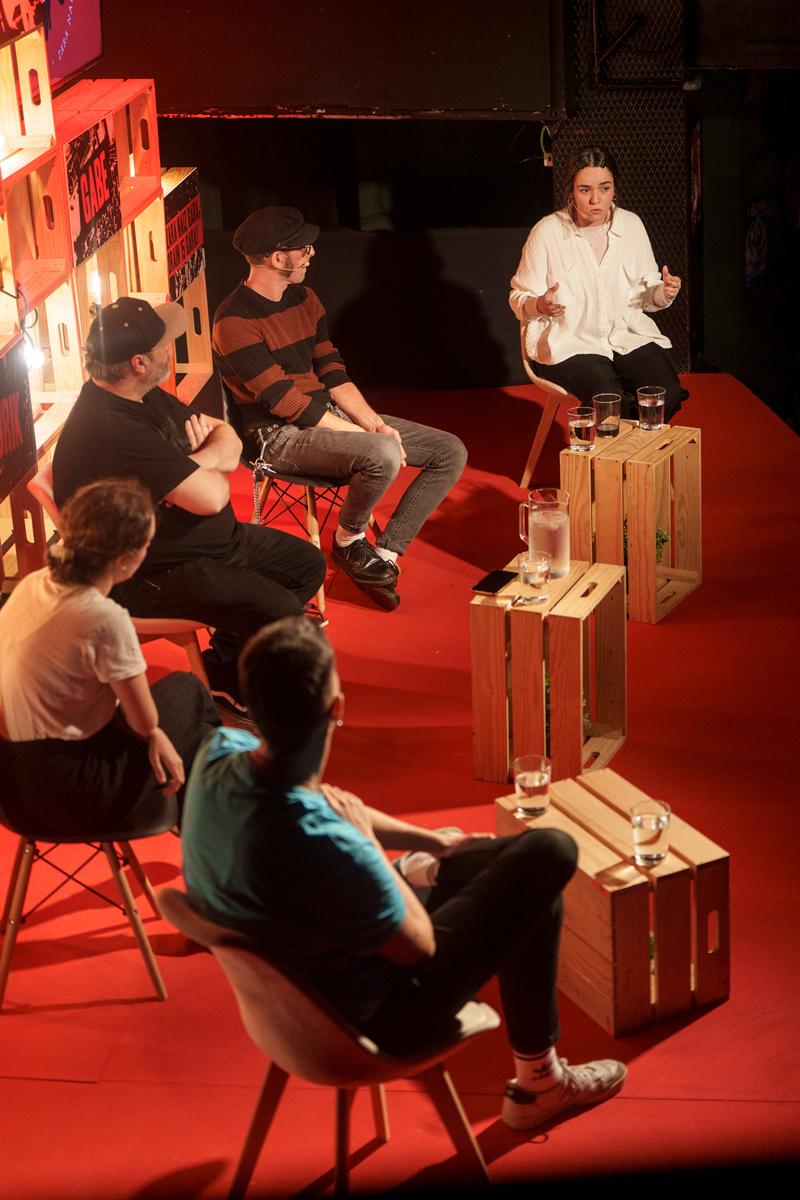
Hunger to fill the BEC
A widespread question among the public has sharpened the tone of the conversation: five years ago, when Berri txarrak twice performed the Navarra Arena, that was guaya, and now filling the BEC is not so much?
Kojo has recalled how in the past Negu Gorriak filled the smaller spaces of the Donostia Velódromo, but since the pandemic it has been noticed that some companies have seen the business. It is also a vicious circle: Municipalities hire the groups that occupy BEC, paying a lot of money, in some cases using much of the municipal department of culture. According to the table members, cultural programmers "more than anything" are looking to fill Barakaldo's BEC.
"Not only does it happen here [the desire to comply with BEC and the like], so do the Spanish groups; they are a demonstration of power"
However, compliance with BEC “not only happens here”, according to Baleztena: "So do the Spanish teams, who fill the Wizink in Madrid. They are a demonstration of power.” According to Idigoras, in addition, they are produced in a “disproportionate” way; what starts in marketing, although there are not so many loyal listeners, can be able to fill an amazing stage.
Aranguren has put the gilda on the subject: “So far it was said that those outside occupied large spaces of this kind, and I have heard that we too had to do so, because otherwise everybody else would. All right. But [the one who says it] is not considering making oppositions to be Police. So, there are also red stripes.”